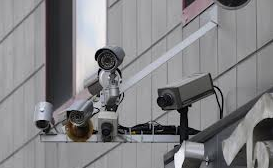
The proliferation of city- and state-operated surveillance technologies—and the need to pair collection rules for these technologies with effective use and access rules has become even more imperative for social awareness.
The New York Times reports today that “ Privacy Fears Grow as Cities Increase Surveillance .” The main theme is that municipal police and law enforcement agencies around the country are deploying new and more sophisticated data gathering and analysis technology, some of it bought with counter-terrorism funds, stoking privacy concerns among residents and watchdog groups.
As with much of the early reporting of National Security Agency surveillance programs disclosed by Edward Snowden, the Times piece is heavy on what the systems collect and how they store and combine information.
Only near the end of the piece, however, does it address accompanying rules and guidelines being developed to regulate such issues as who can access this information, for what purposes, under what supervision, and with what checks. Rapid technological development and lower price-tags for it are inevitable, and the most important question is whether regulation for how surveillance technology and data may be used can keep up.
It is no surprise that local governments are deploying technologies like video surveillance systems, license plate readers, drones, networks of sensors, and systems for aggregating and analyzing the information streams they produce. The New York Police Department has been out in front of other cities in this regard, on account of its size, resources, threats, […]
Source www.lawfareblog.com

